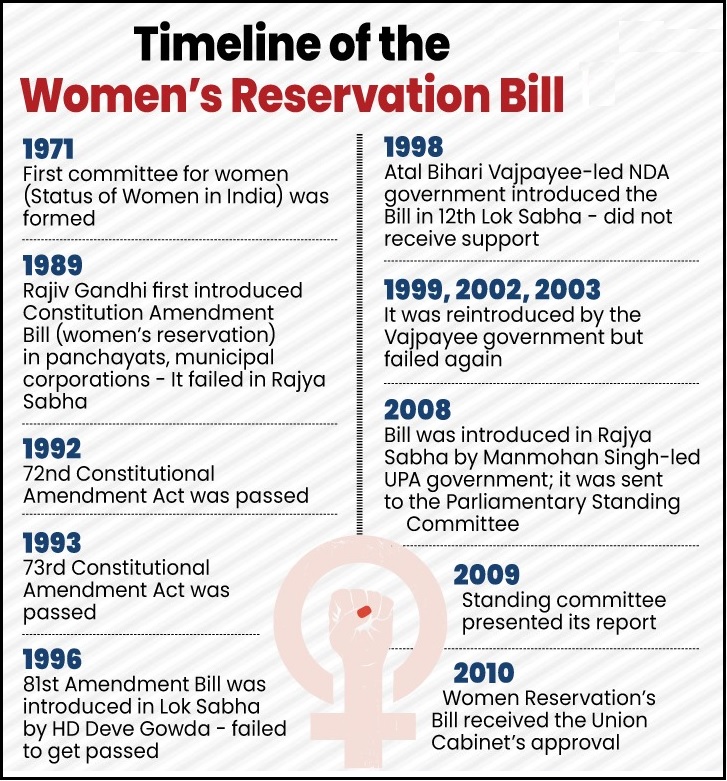900 319 0030
enquiry@shankarias.in
The passage of the 106th amendment act to provide 33% reservation to women in the Lok Sabha and legislative assemblies comes on the 30th anniversary of the constitutional reforms that reserved 1/3rd of seats for women in local government.

Positive impact
Negative impact
Related links - Women Reservation Bill, 2023
References